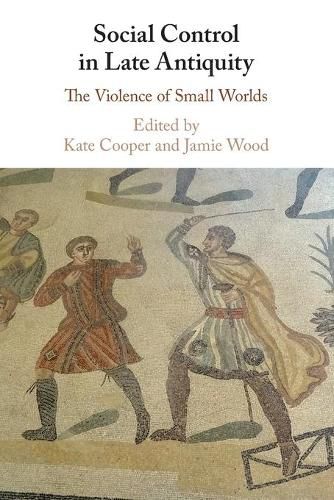Readings Newsletter
Become a Readings Member to make your shopping experience even easier.
Sign in or sign up for free!
You’re not far away from qualifying for FREE standard shipping within Australia
You’ve qualified for FREE standard shipping within Australia
The cart is loading…






Social Control in Late Antiquity: The Violence of Small Worlds explores the small-scale communities of late antiquity - households, monasteries, and schools - where power was a question of personal relationships. When fathers, husbands, teachers, abbots, and slave-owners asserted their own will, they saw themselves as maintaining the social order, and expected law and government to reinforce their rule. Naturally, the members of these communities had their own ideas, and teaching them to ‘obey their betters’ was not always a straightforward business. Drawing on a wide variety of sources from across the late Roman Mediterranean, from law codes and inscriptions to monastic rules and hagiography, the book considers the sometimes conflicting identities of women, slaves, and children, and documents how they found opportunities for agency and recognition within a system built on the unremitting assertion of the rights of the powerful.
$9.00 standard shipping within Australia
FREE standard shipping within Australia for orders over $100.00
Express & International shipping calculated at checkout
Social Control in Late Antiquity: The Violence of Small Worlds explores the small-scale communities of late antiquity - households, monasteries, and schools - where power was a question of personal relationships. When fathers, husbands, teachers, abbots, and slave-owners asserted their own will, they saw themselves as maintaining the social order, and expected law and government to reinforce their rule. Naturally, the members of these communities had their own ideas, and teaching them to ‘obey their betters’ was not always a straightforward business. Drawing on a wide variety of sources from across the late Roman Mediterranean, from law codes and inscriptions to monastic rules and hagiography, the book considers the sometimes conflicting identities of women, slaves, and children, and documents how they found opportunities for agency and recognition within a system built on the unremitting assertion of the rights of the powerful.